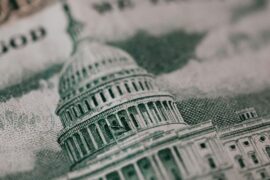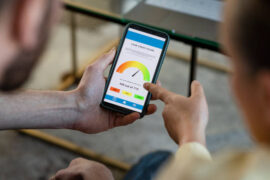This article may contain references to products or services from one or more of our advertisers or partners. We may receive compensation when you click on links to those products or services. Nonetheless, our opinions are our own.
Key Highlights
- Are you stressed about debt or worried that unexpected expenses could cause financial trouble? It might be time to consider the concept of zero debt.
- Zero debt can help you achieve financial freedom, giving you control over your money and reducing stress.
- This blog explores what zero debt means, its benefits, and provides a clear plan to help you achieve it.
- Learn how to create a personalized repayment plan, manage your budget, and increase your income to accelerate debt repayment.
- By following these steps, you can work toward a debt-free life filled with security and peace of mind.
Introduction
In the United States, many people believe that financial freedom starts with eliminating debt. Achieving zero debt means controlling your finances and building a stable future. This blog explores the benefits of being debt-free and offers actionable steps to help you achieve this important financial goal.
Understanding Zero Debt and Its Impact on Financial Freedom
The journey to financial freedom often begins with a desire to eliminate debt. Becoming debt-free is not just about paying off loans and credit cards; it’s about reclaiming control over your finances and creating opportunities for a secure future.
Being debt-free doesn’t mean avoiding credit forever. Instead, it signifies a shift in mindset—prioritizing financial health, making smarter spending decisions, and focusing on long-term goals like saving for a home, investing in your future, or achieving peace of mind.
What is Zero Debt?
Zero debt means having no outstanding financial obligations, such as credit card balances, personal loans, student loans, or mortgages. However, it does not mean avoiding credit altogether. Instead, it emphasizes paying off debts first and using credit responsibly in the future.
By eliminating debt, you can redirect money previously spent on interest toward savings and investments, allowing you to achieve genuine financial freedom.
The Benefits of Achieving Zero Debt
Living without debt offers numerous advantages:
- Reduced Financial Stress: Say goodbye to worrying about debt collectors and overwhelming bills.
- Increased Savings: Free up money to save for future goals.
- Greater Financial Freedom: Pursue dreams like traveling, starting a business, or investing with confidence.
Debt-free living gives you control over your finances, enabling you to focus on what truly matters.
Preparing for Your Zero Debt Journey
Achieving zero debt requires thoughtful planning and commitment. The first step is assessing your financial situation to understand where you stand and identify areas for improvement.
Assessing Your Current Financial Situation
Think of this as a financial check-up. Gather all your financial documents, including credit card statements, loan agreements, and bank records. Create a list of all your debts, noting:
- The lender’s name
- The balance owed
- The interest rate
- The minimum monthly payment
While this step might feel overwhelming, it’s essential for creating a clear picture of your financial situation. Identifying areas where you can reduce spending will free up money to accelerate debt repayment.
Identifying Your Debt Sources
Categorize your debts based on their type, interest rate, and payment terms. Prioritize high-interest debts, such as credit cards, as they accumulate interest quickly. Use a table like the one below to organize your debts:
| Debt Source | Interest Rate | Minimum Payment |
|---|---|---|
| Credit Card A | 18.99% | $150 |
| Personal Loan | 10.99% | $300 |
| Student Loan | 5.00% | $250 |
A Step-by-Step Guide to Achieving Zero Debt
Step 1: Creating a Personalized Debt Repayment Plan
Develop a plan that prioritizes paying off high-interest debts. Consider two popular methods:
- Debt Snowball: Focus on paying off the smallest debt first to build momentum.
- Debt Avalanche: Prioritize debts with the highest interest rates to save on interest over time.
Choose a method that aligns with your goals and motivates you to stay consistent, even during challenging times.
Step 2: Implementing Budgeting Strategies to Control Spending
A budget is a tool for understanding where your money goes and aligning your spending with your goals. Track your expenses for a month using tools like Mint or Personal Capital. Identify areas where you can cut back, such as dining out or unnecessary subscriptions.
- Set up automatic savings and debt payments to simplify progress.
- Regularly review and adjust your budget as your financial situation changes.
Step 3: Increasing Your Income to Accelerate Debt Repayment
In addition to budgeting, consider ways to boost your income:
- Take on a side hustle, such as freelance work or tutoring.
- Explore opportunities for promotions or raises at your current job.
- Leverage gig economy platforms for flexible work options.
Use additional income exclusively for debt repayment to accelerate your journey.
Step 4: Monitoring Progress and Adjusting Strategies
Track your debt repayment progress regularly and celebrate milestones to stay motivated. Life circumstances may change, so be prepared to adjust your plan as needed. Flexibility is key to maintaining focus on your goal.
Maintaining a Debt-Free Lifestyle
Achieving zero debt is a significant milestone, but maintaining it requires cultivating healthy financial habits.
Building an Emergency Fund
An emergency fund serves as a financial safety net, protecting you from unexpected expenses and preventing future debt. Aim to save three to six months of living expenses in a separate account. Start small, saving $50 a month, and build gradually.
Investing in Your Future
With debt eliminated, focus on long-term goals like retirement and major life milestones. Start saving early to benefit from compound interest. Explore options like 401(k)s or IRAs and consult a financial advisor for tailored investment strategies.
Investing secures your financial future, allowing you to pursue your dreams with confidence.
Conclusion
Being debt-free is more than a financial goal; it’s a pathway to lasting financial freedom. By creating a personalized repayment plan, budgeting effectively, and staying disciplined, you can achieve zero debt and build a secure future. Once debt-free, prioritize saving, investing, and maintaining good financial habits to sustain your success. Take the first step today for a brighter financial future.
Frequently Asked Questions
Is it realistic to aim for zero debt?
Yes, achieving zero debt is possible with careful planning and steady effort. Focus on eliminating high-interest debts first.
How does zero debt affect credit scores?
Paying off debt can improve your credit score by reducing credit utilization. However, maintaining a credit history by using credit responsibly is also important.
Can I achieve zero debt with a low income?
Absolutely. Start with a budget, reduce unnecessary expenses, and explore options like debt consolidation to manage repayments more effectively.
How long does it typically take to reach zero debt?
The timeline depends on factors like income, debt amount, and repayment strategy. Focus on steady progress rather than specific deadlines.
What should I do if I fall back into debt?
Reassess your financial situation, revise your budget, and consider seeking help from a credit counselor to get back on track.

Reviewed and edited by Albert Fang.
See a typo or want to suggest an edit/revision to the content? Use the contact us form to provide feedback.
At FangWallet, we value editorial integrity and open collaboration in curating quality content for readers to enjoy. Much appreciated for the assist.
Did you like our article and find it insightful? We encourage sharing the article link with family and friends to benefit as well - better yet, sharing on social media. Thank you for the support! 🍉
Article Title: Zero Debt: Can You Really Live Without Debt?
https://fangwallet.com/2025/02/24/zero-debt/The FangWallet Promise
FangWallet is an editorially independent resource - founded on breaking down challenging financial concepts for anyone to understand since 2014. While we adhere to editorial integrity, note that this post may contain references to products from our partners.
The FangWallet promise is always to have your best interest in mind and be transparent and honest about the financial picture.
Become an Insider

Subscribe to get a free daily budget planner printable to help get your money on track!
Make passive money the right way. No spam.
Editorial Disclaimer: The editorial content on this page is not provided by any of the companies mentioned. The opinions expressed here are the author's alone.
The content of this website is for informational purposes only and does not represent investment advice, or an offer or solicitation to buy or sell any security, investment, or product. Investors are encouraged to do their own due diligence, and, if necessary, consult professional advising before making any investment decisions. Investing involves a high degree of risk, and financial losses may occur including the potential loss of principal.
Source Citation References:
+ Inspo












































